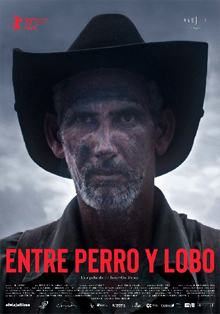Ángel Collado
Keeping their distance, the main leaders of the centre and right-wing parties joined the mobilisation of citizens against the pardons that Pedro Sánchez plans to approve for his pro-independence allies imprisoned for sedition and embezzlement.
Madrid’s Plaza de Colón was once again the scene of the protest by constitutionalists against the prime minister’s determination to satisfy Catalan separatism in exchange for receiving its parliamentary support to remain in power.
But unlike the rally in February 2019, when Sánchez had even accepted the presence of a “rapporteur” in his negotiations on equal terms with the then president of the Generalitat, Quim Torra, the event was organised and led by a civic association, Unión 78. The representatives of the parties remained far from the stage this time, each with their faithful, Pablo Casado for the PP, Inés Arrimadas for Ciudadanos and Santiago Abascal for Vox.
The speakers and convenors, the former PSOE leader Rosa Díez and the writer Andrés Trapiello, insisted amidst loud applause from those gathered that this was not a party event and that they were pleased to have brought together citizens from across the ideological spectrum, right, centre and left. They congratulated themselves on bringing together thousands of Spaniards in order to defend democracy and national sovereignty, principles threatened in their opinion by Sánchez’s compromises with the pro-independence supporters that begin this month to relieve their bosses of prison sentences.
Despite the campaign against the Government and the parties of the coalition Executive, PSOE and Podemos, thousands of citizens filled the Plaza de Colón and even crowded the surrounding streets such as Goya, Génova, Serrano, Paseo de Recoletos, Paseo del Prado and the start of the Castellana.
To relativise the success of the rally, the government media insisted on comparing the attendance at the event with that of 2019, as if there were no pandemic now, and the delegation of the Executive in Madrid hastened to put the number of those gathered in Colón at 25,000, without taking into account that the capacity in the square was restricted to avoid crowds (full from early morning) and that most of the demonstrators had to spread out in the surrounding streets. The Madrid Municipal Police estimated the number of demonstrators at 126,000, a five-fold increase.
For the organisers and those attending, the most important thing was to demonstrate that there is social protest against Sánchez’s plans, which are still the same as those of 2019, to secure the support of the independence movement. ERC is the party that today presides over the Generalitat of Catalonia and which has its leader, Oriol Junqueras, in prison for leading with Carles Puigdemont the coup against the state in the separatist attempt of 1-O.
Sánchez’s government reacted to the success of the demonstration with the same script used to try to deactivate it previously by labelling the organisers and attendees as “far-right”. According to the arguments coined in La Moncloa to defend Sánchez’s pardons, the vice-president of the government, Carmen Calvo, and the spokesperson, María Jesús Montero, once again blamed the PP for the violation of legality in the illegal referendum of 2017 promoted by their current allies.
Sánchez’s firm will to pardon Junqueras and company despite the rejection of Justice, the opposition and part of his party (regional barons and old guard such as Felipe González) was clear a few hours after the rally was dissolved. He is also in a hurry to get through this first hurdle (negotiations with Torra’s successor, Pere Aragonés, will follow) in order to secure the support of the separatists’ parliamentary bloc with the aim of reactivating a legislature that has yet to get off the ground and to undertake projects that will give him room for improvement for his personal image.







